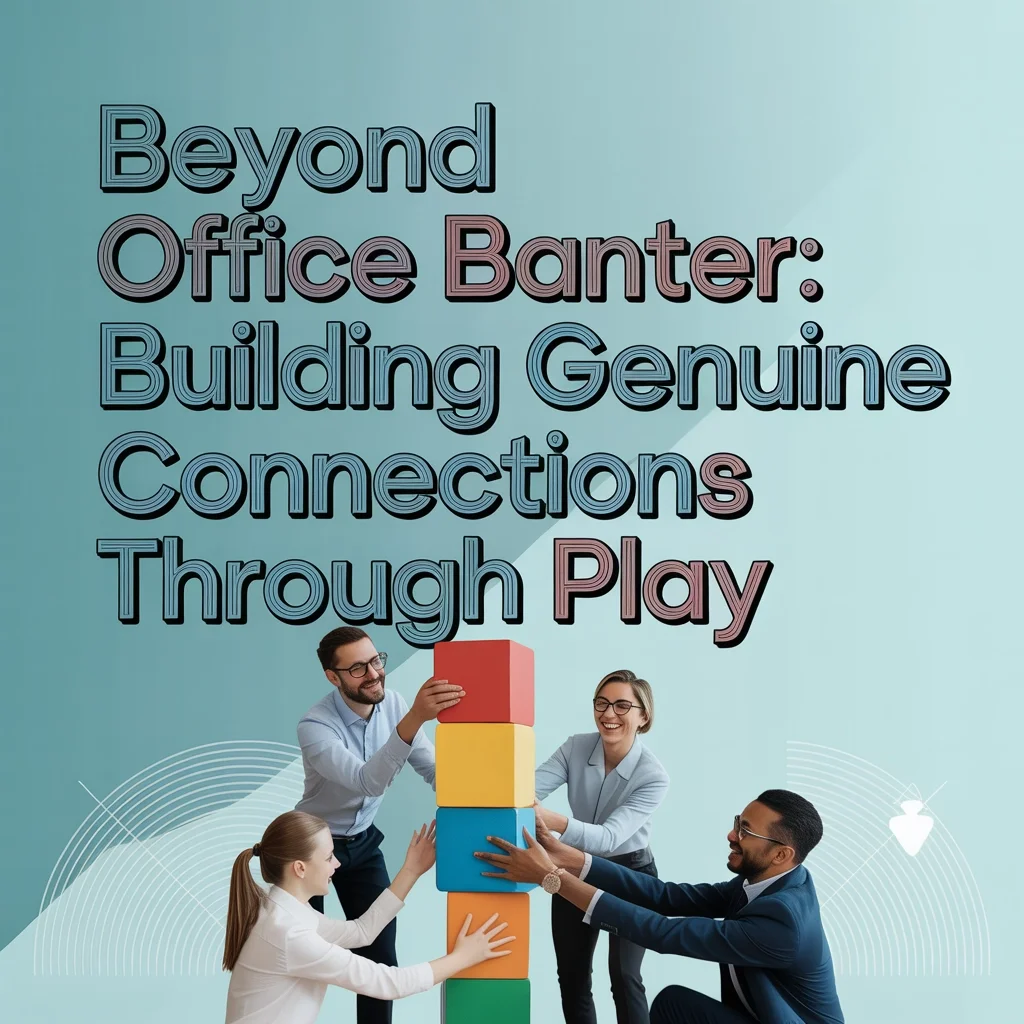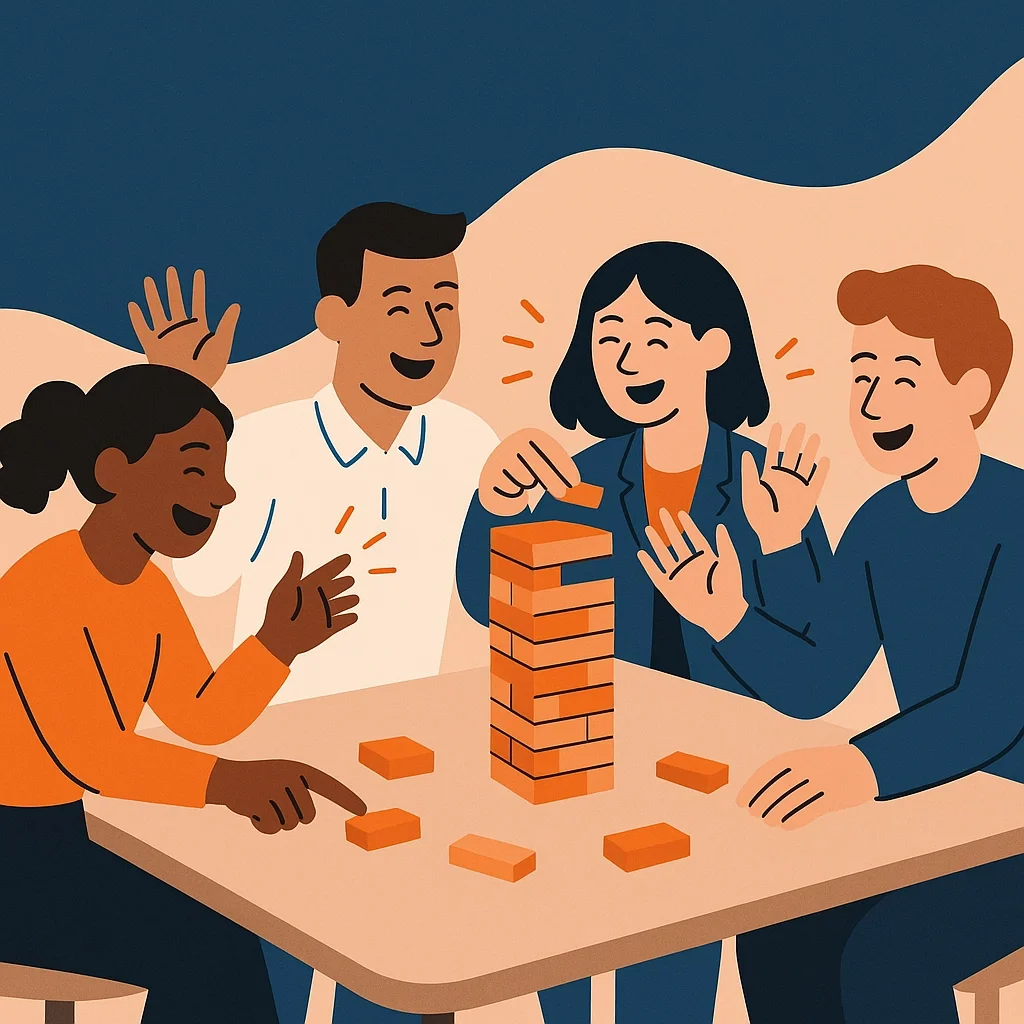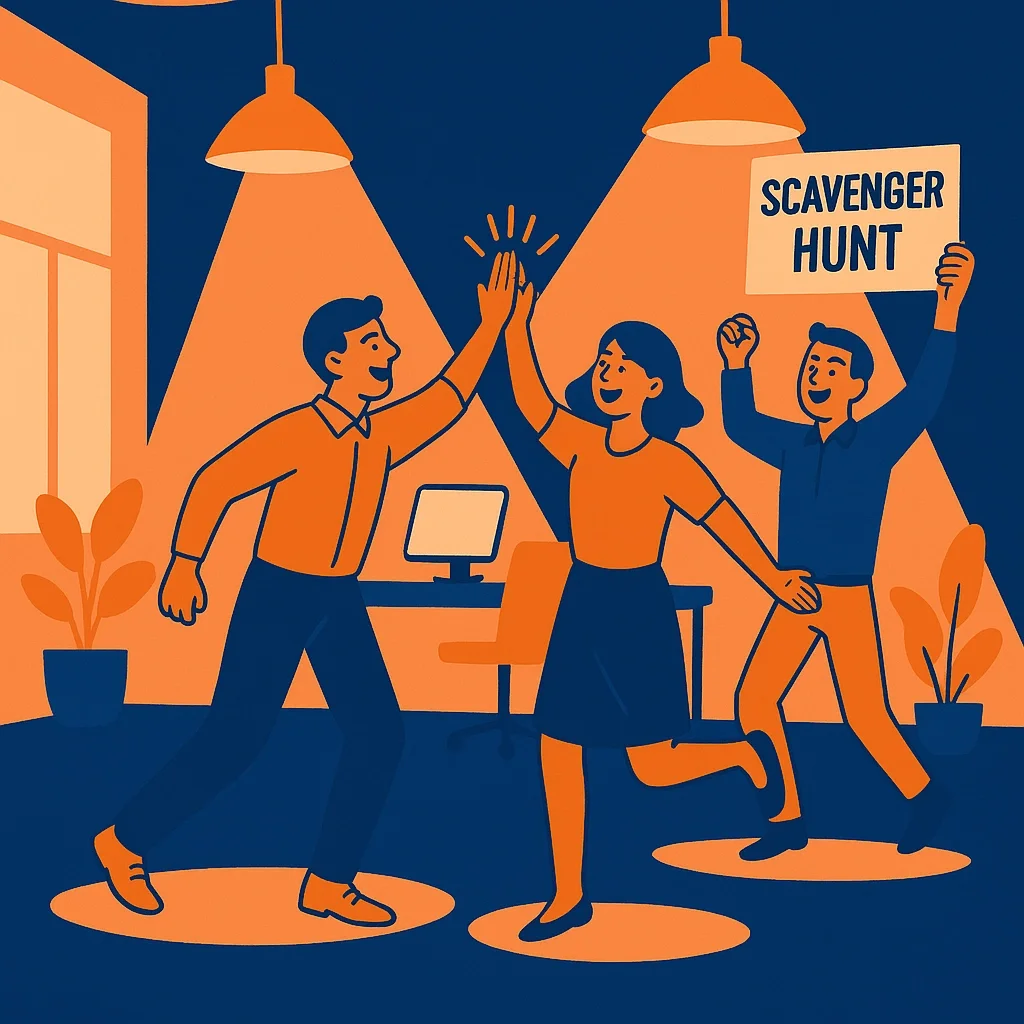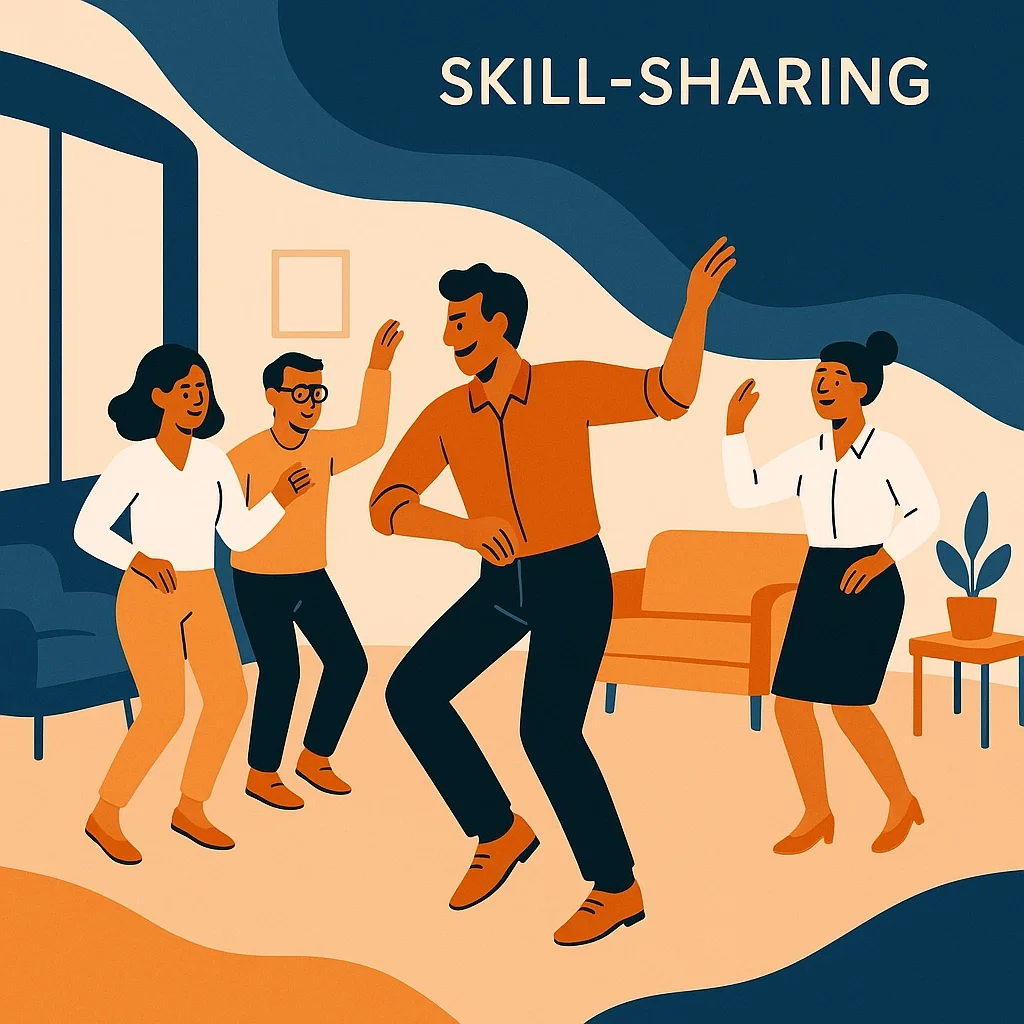Beyond Office Banter: Building Genuine Connections Through Play
Office chat about the weekend footy tips only goes so far. If you’re after a team that does more than share stale memes in Slack, you need something more powerful—something that gets people laughing, moving, and genuinely connecting. Enter the world of play: a seriously fun solution to building real connections that last longer than yesterday’s coffee.
Why Play Beats Small Talk Every Time
Sure, there’s nothing wrong with friendly banter. But when the goal is true team connection (where trust is more than just a checkbox in your onboarding doc), nothing beats the science-backed benefits of play. Engaging in playful activities takes people out of their “work selves”—you know, the one who always has their Outlook face on. Suddenly, the quiet data analyst is revealing lightning-fast reflexes in a game of improv, and the ever-serious manager is leading a conga line in the office kitchen.
Why does this work? Because play is neurologically designed to build bonds. When we play, our brains light up areas involved in creativity, empathy, and connection. It’s not just about fun; it’s about re-wiring the way teams collaborate and support each other.
The Science of Play at Work
Let’s get a bit nerdy: play taps into deep modes of learning and cooperation. Neuroscientists say play activates brain circuits that fuel curiosity and social glue, and psychologists will tell you that teams who play together are more creative and resilient.
Research shows that structured, playful activities (think LEGO challenges, acting games, friendly competitions) encourage the kind of creative problem-solving that actually sticks. Plus, these activities help people drop their professional façade and show who they really are—even if that means an impromptu lip-sync battle nobody saw coming.
Fun fact: When people laugh together at work, they’re not just sharing a joke—they’re releasing endorphins and boosting the sense of belonging. It’s practically brain chemistry’s version of a team hug.
From Small Talk to Real Talk: What Makes Playful Connections Stick?
1. Shared Experiences Create Strong Memories
Anyone can remember a trust fall (especially if someone drops the ball!), but it’s the shared victories—building a spaghetti tower that doesn’t collapse, acing an escape room together, handling the chaos of a surprise improv prompt—that create unforgettable stories. These shared memories aren’t forgotten by Monday morning—they become reference points that shape the culture and language of your team.
2. The Safe Zone of Low-Stakes Play
Great play-based activities encourage risk-taking without consequences. In games or creative workshops, there’s no “wrong” answer. This sense of psychological safety lets people mess up, learn, and laugh together, which strengthens connections more than any perfectly rehearsed PowerPoint. Vulnerability in a safe space builds trust, and trust is the bedrock of every high-performing team.
3. Smashing Social Hierarchies
When the CEO has to mime “angry cat stuck in a box,” titles don’t matter. Play breaks down hierarchies and lets everyone interact as equals. This dismantling of traditional power structures is massive for boosting approachability and opening up real conversation. Suddenly, collaboration becomes a team sport, not just another box to tick on a performance review.
Hands-On Ideas: Building Connections That Last
Ready to inject some real joy and bonding into your workplace? Here’s how companies are banishing surface-level banter and making meaningful connections the norm.
Collaborative Building Challenges
Building something together with your hands—like in a LEGO serious play session—gets people talking and problem-solving organically. It's a non-threatening way to communicate, negotiate, and celebrate creativity. Plus, it's just plain fun.
Improv and Comedy Workshops
Improv isn’t just for stage legends; it’s for anyone who wants to turbocharge communication skills and team spirit. Improv exercises level the playing field, encourage quick thinking, and make it easy to accept ideas (yes, even the weird ones). At Chatterbox Workshops, we’re pretty obsessed with how comedy and play help teams loosen up and dig deep into their truest strengths.
Gamified Team Activities
From escape rooms to office scavenger hunts, games bring a spirit of healthy competition, collaboration, and lots of laughs. These aren’t just time-fillers—they’re powerful tools for strengthening relationships and unlocking talents that don’t always show up on a resume.
Skill-Sharing Sessions
Invite team members to run short classes on their hobbies—from coffee tasting to salsa dancing. These sessions put people in the spotlight for something they love outside work and inspire curiosity and admiration among colleagues. Suddenly Steve from IT is everyone’s go-to for latte hacks.
Spontaneous Play Spaces
You don’t need a full-blown program to keep play alive—sometimes, it’s about providing the right environment. A board game shelf, quick desk challenges, or a giant Jenga set in the kitchen invites organic moments of play and connection throughout the workday.
From Play to Psychological Safety
It’s easy to overlook the behind-the-scenes magic play brings to team dynamics. But that giggle-filled five minutes at morning tea has real lasting impact:
Reduces anxiety: Play dissolves the awkwardness, so people relax around each other even under pressure.
Encourages open communication: The vulnerability of play teaches teams how to give and receive feedback without fear.
Boosts empathy: Shared activities help colleagues see each other as more than just job titles.
It all feeds into a cycle: the safer people feel, the more playful they get—and the more playful they get, the safer and more connected the team becomes.
Measuring the Ripple Effects of Play
A team that plays together doesn’t just have more fun—they’re better at navigating challenges, bouncing back from setbacks, and supporting each other through thick and thin. Teams that invest in playful bonding:
Have higher levels of trust and collaboration
Report less stress and higher job satisfaction
Communicate with greater honesty and empathy
Show more creativity and flexibility when solving problems
Plus, when the going gets tough (like an urgent project landing at 4:55 on a Friday), playful teams draw on their strong connections and shared memories to get the job done without drama.
Making Play Part of Your DNA
Here’s the secret: successful workplaces don’t treat team-building play as a one-off event. They build it into their culture—regular activities, spontaneous games, and spaces designed for laughter and creativity. That’s where the genuine magic happens.
If you want to move beyond transactional chatter and create a workplace where people feel like they belong, start playing. The deeper connections, lasting trust, and happier teams are well worth it.
Want more inspiration (and proof that it works)? Jump into our collection of insights:
Improv Isn’t Just for Comedians—How Playfulness Supercharges Teamwork at Work
The Serious Business of Fun: How Comedy Workshops Drive Real Workplace Results
Less Snooze, More Schmooze: How Gamified Workshops Make Communication Skills Actually Fun
Play is more than a break from the grind—it’s the key to building workplaces where people belong, thrive, and look forward to Mondays. Let the games begin.





